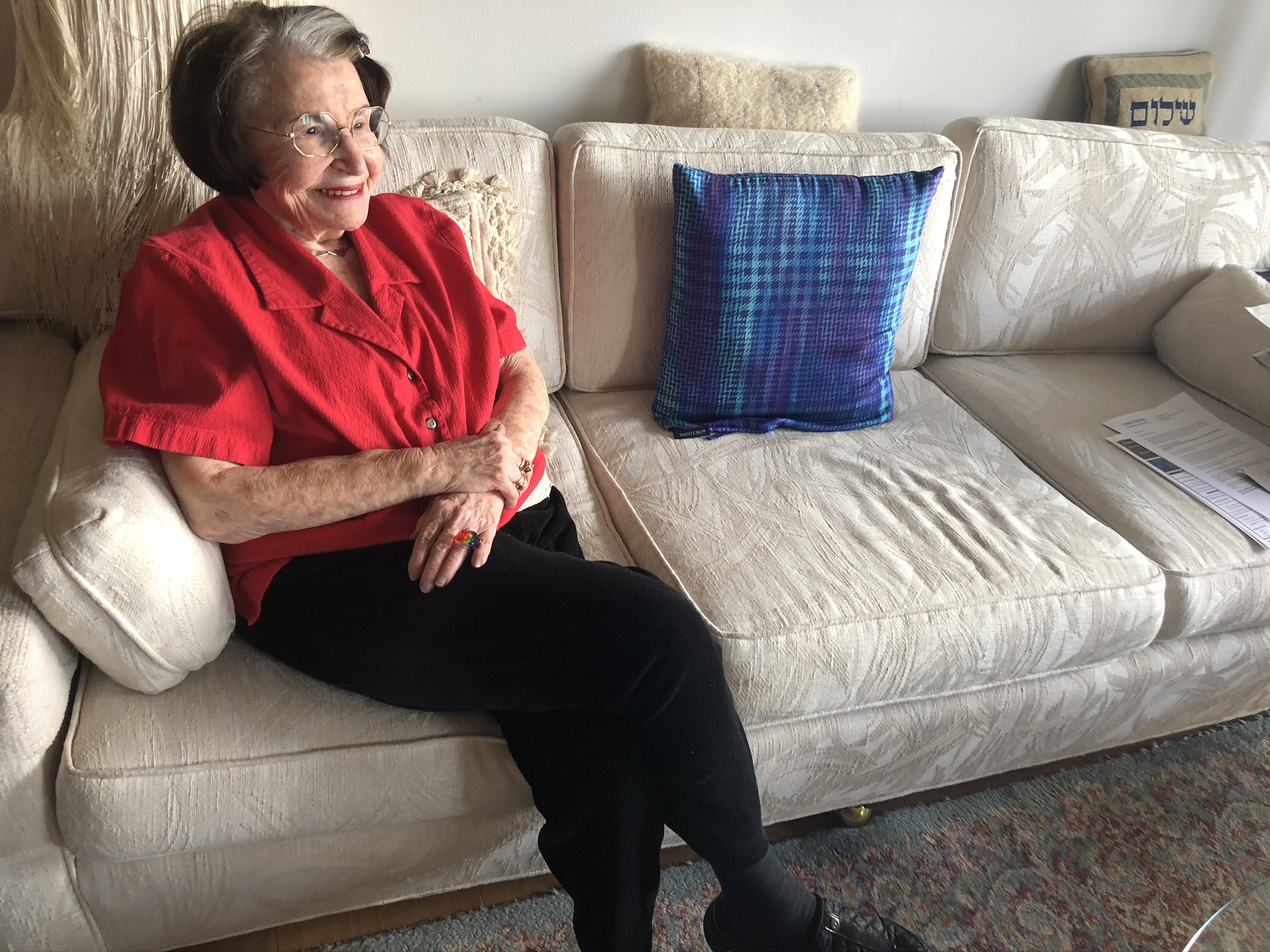Scared of virus? Not this female underground fighter
Talking to a Center City neighbor — from a safe distance of course — about the threat of death that envelops us, I tell her I can’t recall a time of similar peril.

“I can,” says Bella Lewensohn Schafer.
“Really?” I say. “When was that?”
“When I was in the underground during the War of Independence.”
“What?”
I needed to hear Bella’s story, which has as many twists as a pretzel factory.
She is referencing the 1947-‘49 Israeli War of Independence that started after Israel declared its independence and was immediately attacked by five Arab nations vowing to throw the Jews into the sea.
They were stopped by people like 91-year-old Bella, all 4 feet, 8 ½ inches of her lying on her belly on the outskirts of Jerusalem, firing a rifle at advancing Jordanian troops.
“They were trained by the British. They were good soldiers, disciplined, not like the other Arab armies,” she says.
“We killed the enemy, of course. Jerusalem was surrounded.”
Bella talks as an officer might — she was among the first group of Israeli women trained as officers — but she reminds me of the effervescent Dr. Ruth, the tiny psychologist of a few decades ago.
After serving on the front lines, she was reassigned because of her excellent English, which she had studied since the first grade. She was sent to the port of Haifa, where she was the translator for the commander of the tiny Israeli navy, who was a Scot who spoke no Hebrew, Israel’s main language.
After the war ended, in 1950 Bella came to the U.S. with her American fiance, Stephen, with whom she had three children. She earned a masters in social work at Temple and has taught at Penn and Gratz College.
Prior to being selected for officer training by the Haganah, the Israeli self-defense force, as a teenager she was in the Young Maccabees, an underground group.
“My job at the beginning was to carry on my body, two grenades on public transportation to a secret headquarters on the outskirts of Jerusalem,” she says. The grenades were hidden because the British occupiers of Palestine would arrest anyone with arms.
Her younger brother Balfour was in the Irgun, an underground terror organization and was killed during the war.
Her older brother Abraham had joined the U.S. army after World War II broke out and could do that because he was an American citizen, as were Bella and Balfour, although all three were born in Jerusalem.
That was because his father Benjamin had lived in the States and became a citizen before moving to what was then Palestine. His wife Fruma was a well-known artist.
Benjamin’s children were born American citizens. When Abraham joined the U.S. army, he had never set foot in America.
The family was used to living under threat. They lived on the outskirts of Jerusalem, “and there was an Arab village right behind our house,” Bella says.
Between 1937-‘39, there were periodic uprisings, as Bella calls them, when Arabs would attack Jews and vice versa.
She remembers her father shooting from their windows to drive away attacks, and being so scared she hid under a sewing machine.
Once a week her father would have to go to Haifa on business — he was in advertising — and he would kiss her. “We were not a kissing family. We were Russian Jews and we did not kiss,” she says.
He did it because there were attacks on the roads and it was possible he might not return.
In a bit of irony, the thing that forced Bella’s father to return to Israel from the U.S. in 1918 was — the Spanish Flu pandemic. He believed it was safer to be in Palestine.
He survived that pandemic. His daughter is surviving this one.



